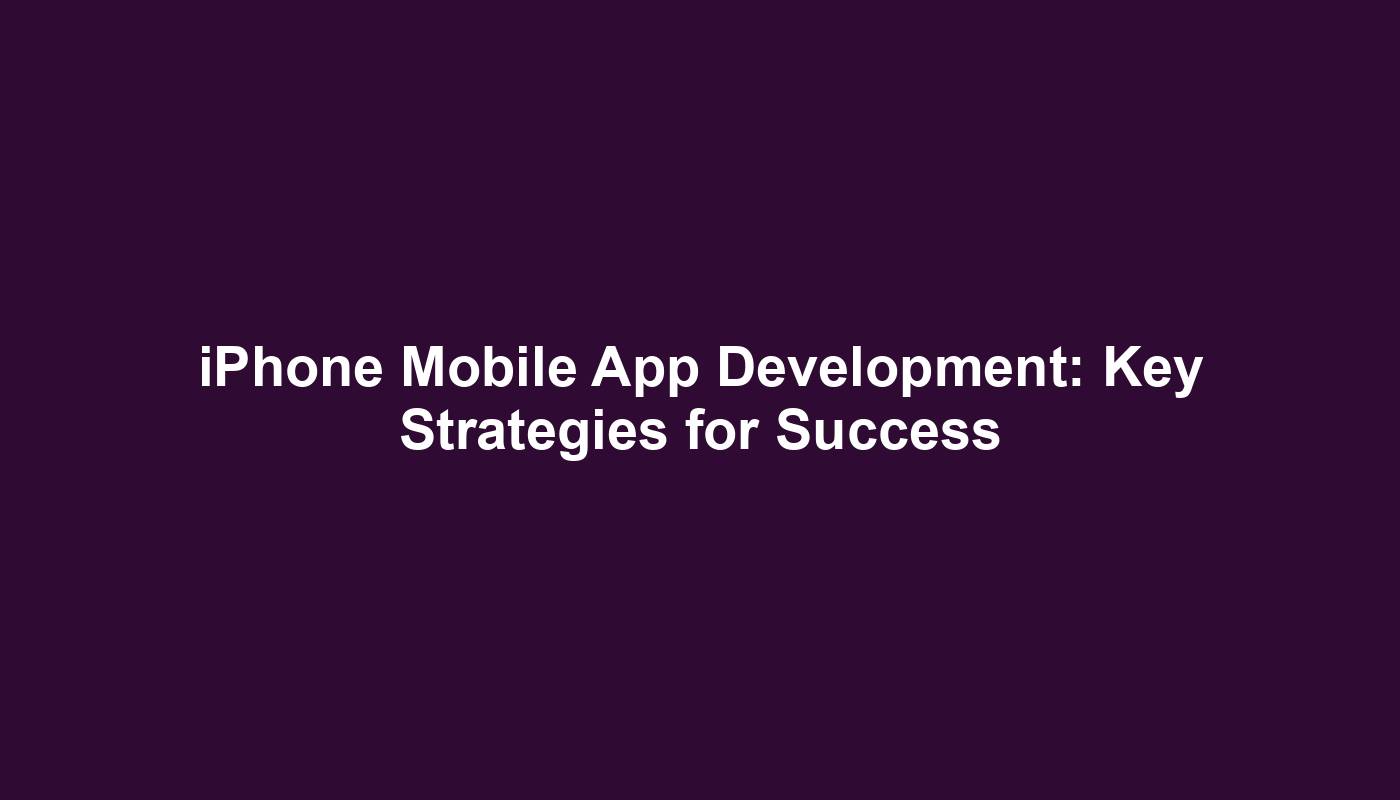Successful iPhone Mobile App Development: Key Strategies
In the thriving world of mobile technology, iPhone app development presents a lucrative opportunity for businesses and developers to reach a vast and engaged audience. However, creating a successful iPhone app requires more than just coding skills; it demands a strategic approach that encompasses design, development, marketing, and user experience considerations. This comprehensive guide will delve into the key strategies that can pave the way for your iPhone app’s success in the competitive App Store.
1. Define Your App’s Purpose and Target Audience:
Before writing a single line of code, clearly articulate your app’s purpose and identify your target audience. What problem does your app solve, or what need does it fulfill? Who are the ideal users you want to attract? Understanding your target audience will help you tailor the app’s features, design, and marketing strategy to resonate with them.
2. Research and Competitive Analysis:
Thoroughly research the App Store to identify similar apps in your niche. Analyze their features, user reviews, and overall success. This competitive analysis will provide valuable insights into what works and what doesn’t in your market, helping you differentiate your app and identify potential areas for improvement.
3. Craft a Compelling User Experience (UX):
User experience is paramount for app success. Invest in creating an intuitive, user-friendly, and visually appealing interface that aligns with Apple’s Human Interface Guidelines (HIG). Conduct user testing to gather feedback and refine the UX throughout the development process. A positive UX can significantly boost user engagement and retention.
4. Embrace Swift and Xcode:
Swift, Apple’s modern programming language, is the preferred choice for iOS development. Its clean syntax, safety features, and performance optimizations make it ideal for building robust and efficient iPhone apps. Xcode, Apple’s integrated development environment (IDE), provides a comprehensive suite of tools for coding, designing, testing, and debugging your app.
5. Optimize for Performance and Security:
iPhone users expect fast and responsive apps. Optimize your code for performance by minimizing memory usage, utilizing efficient algorithms, and optimizing resource-intensive tasks. Implement robust security measures to protect user data, ensuring compliance with Apple’s stringent security guidelines.
6. Test Rigorously:
Thorough testing is essential to identify and fix bugs, glitches, and performance issues. Utilize Xcode’s testing framework and conduct both manual and automated testing on various iOS devices and versions. Beta testing with a select group of users can also provide valuable feedback before the official launch.
7. App Store Optimization (ASO):
ASO is crucial for improving your app’s visibility in the App Store search results. Optimize your app’s title, description, keywords, and visuals to attract organic downloads. A well-executed ASO strategy can significantly boost your app’s discoverability and organic growth.
8. Marketing and Promotion:
Developing a great app is just the first step. To reach your target audience and drive downloads, you need a robust marketing and promotion strategy. This may involve social media marketing, content marketing, paid advertising, influencer marketing, and public relations efforts.
9. Post-Launch Monitoring and Updates:
After launching your app, continuously monitor its performance, user feedback, and analytics data. Regularly release updates to fix bugs, improve performance, and add new features based on user demand. Actively engage with your users through feedback channels and social media to build a loyal community around your app.
10. Partner with Experienced iOS Developers:
If you lack in-house expertise, consider partnering with an experienced iOS development company or hiring skilled iOS developers. Their knowledge and experience can be invaluable in navigating the complexities of iOS development and ensuring a successful app launch.
By following these key strategies, you can increase your chances of developing a successful and impactful iPhone app. Remember, the mobile app landscape is constantly evolving, so stay abreast of the latest trends, technologies, and best practices to remain competitive and deliver exceptional user experiences.




























